Search
Remove Ads
Advertisement
Summary 
Loading AI-generated summary based on World History Encyclopedia articles ...
Search Results
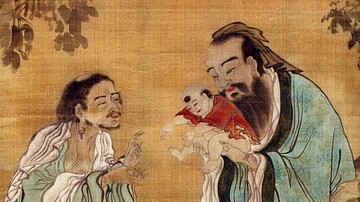
Definition
Lao-Tzu
Lao-Tzu (l. c. 500 BCE, also known as Laozi or Lao-Tze) was a Chinese philosopher credited with founding the philosophical system of Taoism. He is best known as the author of the Laozi (later retitled the Tao-Te-Ching translated as “The Way...
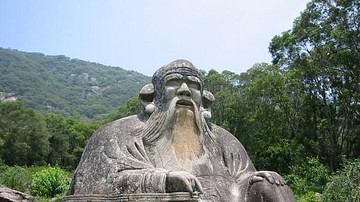
Image
Lao-Tzu
A monumental statue at Mt. Qingyuan of Lao-Tzu, the Chinese philosopher who lived c. 500 BCE and who is credited with founding Daoism (Taosim).
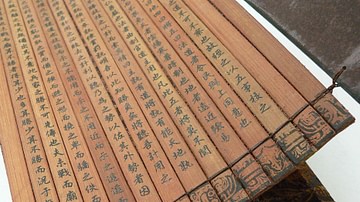
Definition
Sun-Tzu
Sun Tzu (l. c. 500 BCE) was a Chinese military strategist and general best known as the author of the work The Art of War, a treatise on military strategy (also known as The Thirteen Chapters). He was associated (formally or as an inspiration...

Definition
Taoism
Taoism (also known as Daoism) is a Chinese philosophy attributed to Lao Tzu (c. 500 BCE) which developed from the folk religion of the people primarily in the rural areas of China and became the official religion of the country under the...
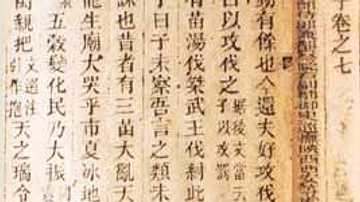
Definition
Mo Ti
Mo Ti (l. 470-391 BCE, also known as Mot Tzu, Mozi, and Micius) was a Chinese philosopher of the Warring States Period (c. 481-221 BCE) associated with the Hundred Schools of Thought (different philosophical schools which established themselves...
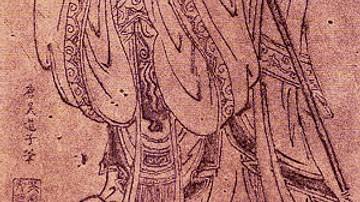
Definition
Ancient Chinese Philosophy
The term Ancient Chinese Philosophy refers to the belief systems developed by various philosophers during the era known as the Hundred Schools of Thought when these thinkers formed their own schools during the Spring and Autumn Period (c...
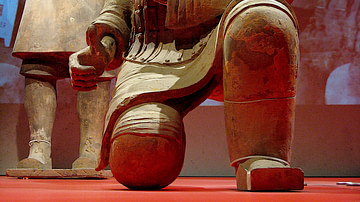
Definition
The Art of War
The Art of War (Sunzi bingfa) is a 5th-century BCE military treatise written by the Chinese strategist Sun-Tzu (aka Sunzi or Sun Wu). Covering all aspects of warfare, it seeks to advise commanders on how to prepare, mobilise, attack, defend...

Image
Confucius, Buddha and Lao-Tzu
A Qing Dynasty print showing Confucius presenting Gautama Buddha to the philosopher Lao-Tzu.
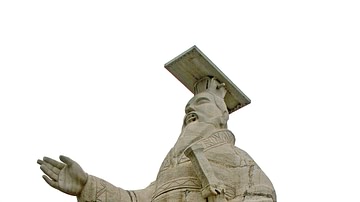
Definition
Shi Huangdi
Shi Huangdi (l.259-210 BCE/r.221-210 BCE, also known as Qin Shi Huang, Qin Shih Huandi, Shi Huangti or Shih Huan-ti) was the first emperor of a unified China. Shi Huangdi means `First Emperor' and is a title, not a proper name. The Qin Dynasty...

Definition
Ancient China
Ancient China produced what has become the oldest extant culture in the world. The name 'China' comes from the Sanskrit Cina (derived from the name of the Chinese Qin Dynasty, pronounced 'Chin') which was translated as 'Cin' by the Persians...